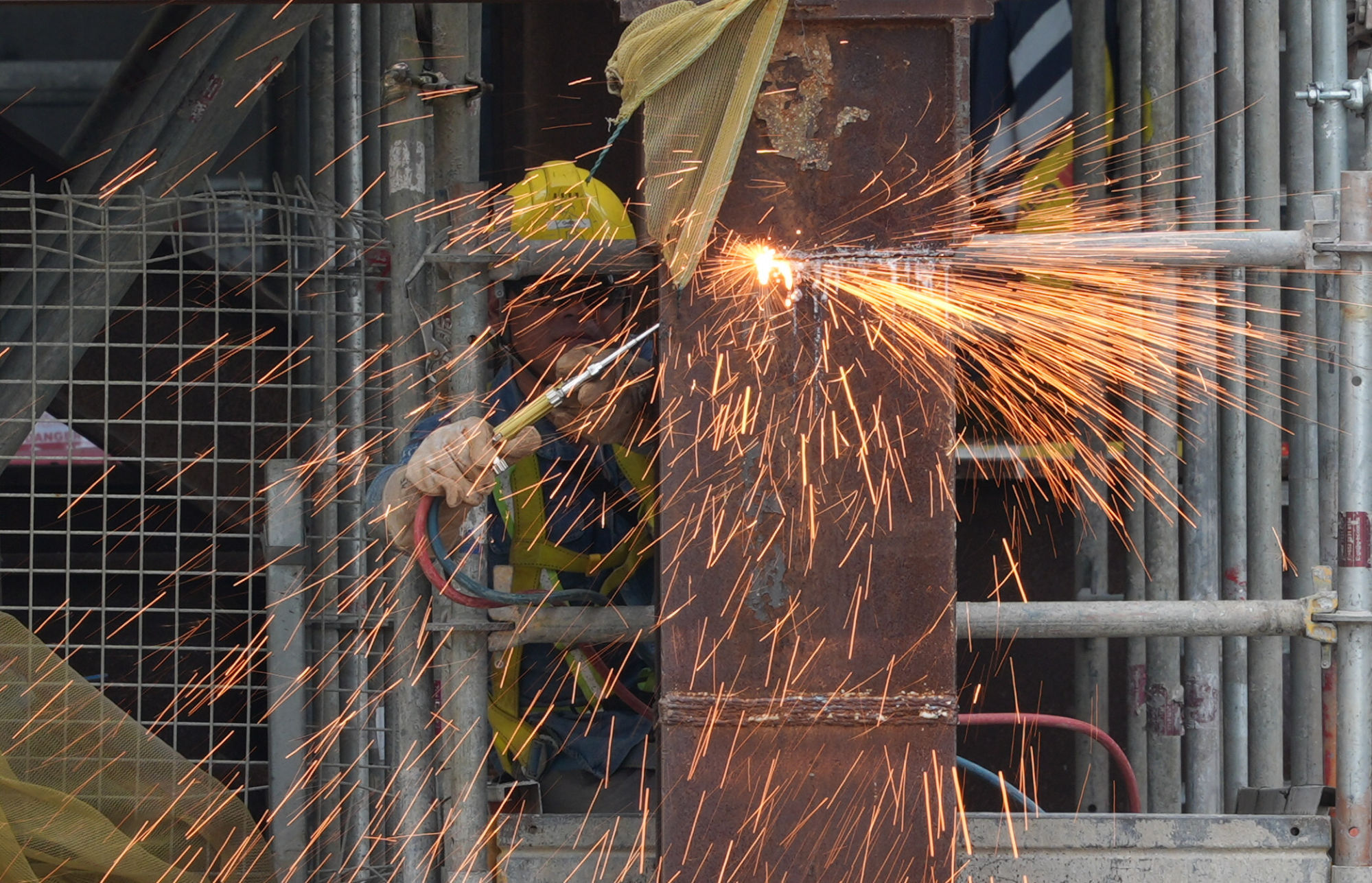
Hong Kong authorities urged to bar non-emergency workers from going to work amid adverse weather
- Association for the Rights of Industrial Accident Victims says only a work suspension can safeguard the safety of workers effectively
- But lawmaker argues it is not necessary as long as employees can return to work safely
A Hong Kong rights group has urged authorities to prohibit non-emergency service employees from travelling to work amid extreme weather, saying recently revised guidelines are not enough to keep workers safe.
Fay Siu Sin-man, chief executive of the Association for the Rights of Industrial Accident Victims, made the appeal on Friday, a day after the Labour Department updated the code of practice for adverse weather and extreme conditions.
The code was revised after the city’s first extreme weather condition warning was issued when a ‘once-in-500-years’ rainstorm struck last year.

According to the revised code of practice, employers should consider employees’ safety, as well as the feasibility of travelling to and from work when making contingency measures.
Employers are required to conduct a timely and realistic assessment of whether workers need to report for duty at workplaces.
They should not ask for additional working hours or deduct wages, bonuses, allowances and holidays if employees cannot resume work on time due to adverse weather or extreme conditions.
But association chief Siu said: “Eventually, it still depends on the contract terms and the employers’ demand.
“Employers requesting employees to work under adverse weather and extreme conditions may put workers in danger.
“Only a work suspension can safeguard the safety of workers effectively.”
The administration last year said it could not suspend work citywide as some employees, such as personnel of hospitals and homes for the elderly, still had to serve people in need.
Siu said the ban should then be introduced to cover non-emergency workers, including security guards. She recalled when a guard died on his way to work during last year’s record-breaking rainstorm.
Lawmaker and chairman of the Federation of Hong Kong and Kowloon Labour Unions Lam Chun-sing said on Friday suspension for all industries would not be necessary as long as employees could return to work safely and employers could provide a hazardless working environment.
“Most importantly, the employers have to comply with the guidelines … If many are found to have failed to comply, the government can explore whether it needs to include some of them into the current legislation,” Lam said.

He noted that his union received complaints from employees who were asked to compensate for lost working hours with their holidays.
Hong Kong has been facing more extreme weather events. This year, it experienced its warmest April since records began in 1884. The monthly mean maximum temperature of 28.9 degrees Celsius was the highest on record.
Separately, the Labour Department also adjusted the three-tier heat stress at work warning system, where workers, depending on their labour intensity, had to take a break for 15 to 45 minutes every hour or suspend work whenever a heat alert was issued. The system introduced last May was criticised for the abrupt issuing and cancelling of alerts.
Under the new arrangement, the warning would also be issued together with the Hong Kong Observatory’s “extremely hot weather” special alert, which is issued if the temperature generally reaches 35 degrees.
The authorities would take reference from weather statistics for an hour rather than the current 30 minutes. Employers could also reduce the work intensity and speed to reduce workers’ break time.

